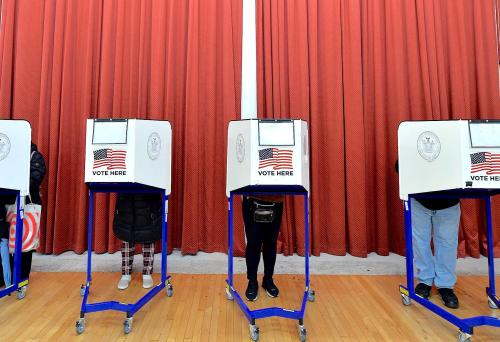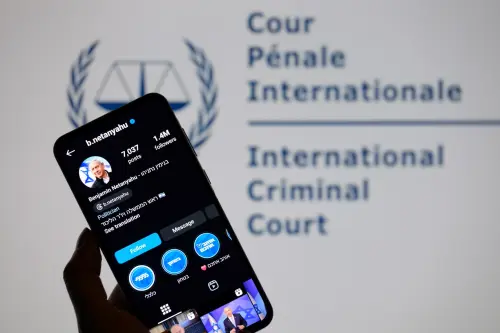This week, the Colorado Supreme Court issued a long-awaited ruling on the topic of medical marijuana and employment practices. In Coats v. Dish Network, an employee sued for wrongful termination after he tested positive for marijuana. The plaintiff is a quadriplegic who used medical marijuana outside of working hours. Mr. Coats was a registered medical marijuana user, accessing the product in a manner consistent with state constitutional guarantees and state statute.
This week, the Colorado Supreme Court ruled against Mr. Coats, and frankly, the court was probably correct in its ruling. This perspective is not a popular one in the marijuana advocacy community, but it is a reality. Mr. Coats broke the law by using marijuana. He used a product that is illegal under the Controlled Substances Act, as marijuana is a schedule I drug. Under that classification, marijuana “has a high potential for abuse…has no currently accepted medical use in treatment in the United States [and] there is a lack of accepted safety for use of the drug or other substance under medical supervision” [21 U.S.C 812(b)(1)]. The Colorado Supreme Court did not let Mr. Coats down. A confusing legal landscape created by congressional action and executive branch inaction led to this outcome.
At specific issue in this case was the plaintiff’s claim that Colorado labor laws deemed his use of marijuana legal (and thus his termination illegal). The provision in question was C.R.S. 24-34-402.5 “Unlawful prohibition of legal activities as a condition of employment.” This provision notes that a termination is “a discriminatory or unfair employment practice” if the employee is fired for “engaging in any lawful activity off the premises of the employer during nonworking hours.”
The court held in a unanimous opinion that the term “lawful activity” extends to both state and federal law. Based on reactions to the ruling, particularly in the marijuana and patient advocacy communities, this finding is quite controversial. Yet, should it be?
Why the “lawful activity” ruling could be wrong
The plaintiff argued that the term was never defined as to include federal law, and thus should be interpreted in the narrowest of ways—meaning only dealing with state laws. This claim is not necessarily off-base. The provision of statute is a Colorado labor law, and perhaps its reach should include only other Colorado laws. The court ultimately disagreed, determining the plain meaning of the statute meant “law” construed broadly.
Next, (though an issue the Court passed on) the text of Amendment 20 and Amendment 64 provide some insight. Amendment 20 (a constitutional provision dealing with medical marijuana in Colorado) offers an affirmative defense to medical marijuana users. To be clear, this does not necessarily deem its use legal. A creative court surely could have rested a ruling on this point: that medical marijuana use is not unlawful (or at least has the effect of being lawful).
Alas, the Colorado Supreme Court withheld its creativity in Coats.
Why the “lawful activity” ruling could be right
Labor law in the United States is not reserved for the states. The federal government through the Fair Labor Standards Act, other laws, and agency regulations also sets bounds and rules for employment. An employer must maintain a working environment that is consistent with both state and federal laws. If a state allows children to be employed or working days to be long and without breaks, federal law would still prohibit it. (Admittedly, the use of medical marijuana bears no resemblance to child labor exploitation.) Labor law is federalist in nature, jurisdiction being shared between states and the federal government.
In reality, a federal official could arrest Mr. Coats for marijuana-related offenses under federal law. Regardless of one’s feelings about the propriety of that reality, it remains a reality. By that logic, Mr. Coats activity—the use of marijuana—is not a lawful act, as he was using a schedule I drug within the United States.
Advocates argue that if only the Colorado Supreme Court ruled in favor of Coats, the issue would be settled. However, perhaps that is not the case. Admittedly, I am not a labor lawyer, and thus, I ask: if the court found in Coats’ favor—declaring his termination “discriminatory or unfair”—would Dish Network have a federal claim that their termination was proper? If Dish Network had standing in federal court, this issue becomes a no-brainer given the Controlled Substances Act, making the Colorado Supreme Court ruling moot—regardless of its outcome.
If you disagree with Coats who should you blame?
The answer to this question is simple: Congress. Yes, the Colorado Supreme Court could have ruled differently. Yes, the Colorado legislature could rewrite 24-34-402.5 to define “lawful activity” to apply to state law and not federal law. However, nothing in the federal Fair Labor Standards Act would prevent Dish Network from firing Mr. Coats.
What Coats v. Dish Network draws into focus is an increasingly difficult element of drug policy (and law) in the United States. States are legalizing the use of medical and recreational marijuana. Federal efforts have limited funding for the use of enforcing medical marijuana laws (Congress) or use prosecutorial discretion to limit the enforcement of marijuana laws (Department of Justice). However, those moves do not resolve the serious disconnects in the law that extend far beyond a medical marijuana patient fearing prosecution. Inconsistencies between state and federal marijuana laws extend to issues of employment, housing, banking, property rights, and a variety of other areas.
In addition, while the Obama administration’s clear guidelines that allow state marijuana regimes has given clarity to states with regard to the operation of their systems, it does little else. In fact, in many ways it enhances the legal difficulties and complexities in American drug policy.
Federal officials—the president, regulators, and most importantly, Congress—must take ownership over a system of disconnected laws and policies. Federalism is a system that can work quite well, yet current drug policy shows precisely how a patchwork of temporary fixes can lead to profound confusion and unintended consequences. And in the case of Coats v. Dish Network, that patchwork also has a real life victim: Brandon Coats.
The Brookings Institution is committed to quality, independence, and impact.
We are supported by a diverse array of funders. In line with our values and policies, each Brookings publication represents the sole views of its author(s).



Commentary
In Coats v. Dish Network, don’t blame the Colorado Supreme Court, blame Congress
June 19, 2015